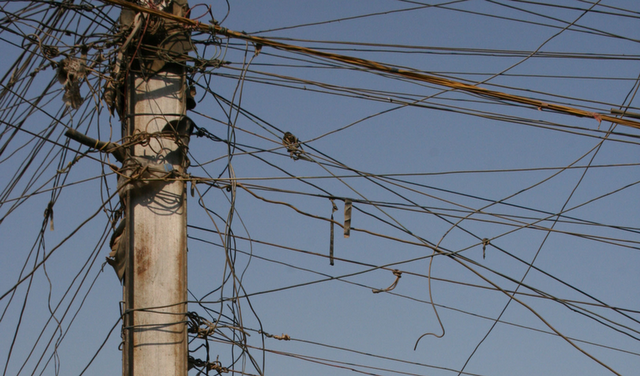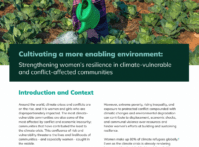Iraq’s “Day of Rage” – a phenomenon that has swept the Middle East since Tunisia’s “
Jasmine Revolution” – reportedly claimed the lives of
nearly 20 people last week. But though the protests may have been inspired by the current broader movement in the region, they are also a symptom of long-standing grievances ordinary Iraqis have had with their government since the American invasion, including lack of public services like access to clean water and especially, reliable electricity.
While these protests alone are unlikely to lead to revolution, they reveal basic livelihood challenges that neither the United States nor the Maliki government have effectively addressed.
The protests in Baghdad and more than 10 other cities were the largest since last summer, when demonstrations over access to electricity led to the death of two protestors in Basra. The New Security Beat spoke to Iraq’s first Minister of the Environment, Mishkat Al Moumin, after those protests to ask her about the lack of services and Iraq’s other non-security challenges, including water security, women’s empowerment, and demographics. She said that decentralizing decision-making power might help alleviate pressure on the government and provide more effective local services:Enacting policies at the local level establishes a sense of ownership among local communities and provides them with an incentive to protect their environmental resources. Moreover, it provides a better opportunity to involve the main stakeholders in policymaking.
Frederick Burkle, senior public policy scholar at the Wilson Center and a senior fellow of the Harvard Humanitarian Initiative at the Harvard School of Public Health, recently cited the military’s failure to restore services, specifically public health services in Iraq, as something the State Department and USAID should seize on to justify the end of “militarized aid.” He pointed out that a 2004 joint report by the Iraqi Ministry of Health and Red Cross found more death and illness was due to the country’s decimated public health infrastructure and social protections than to the violence of war:These indirect deaths from war are preventable but require attention from the occupying powers to the invaded country’s declining public health, social, and physical protections. Iraqis were well aware of this deficiency, and the United States’ lack of attention to the matter led to the loss of lasting trust.
For more on Iraq, be sure to also check out The New Security Beat’s interview with Steve Lonergan, former head of Canada-Iraq Marshlands Initiative, on the state of the southern marshes and their potential for peacemaking.
Sources: Foreign Affairs, The New York Times.
Photo Credit: Adapted from “Tangle of electrical wires in Baghdad,” courtesy of flickr user News Hour (PBS News Hour – Larisa Epatko).

 A Publication of the Stimson Center.
A Publication of the Stimson Center.







